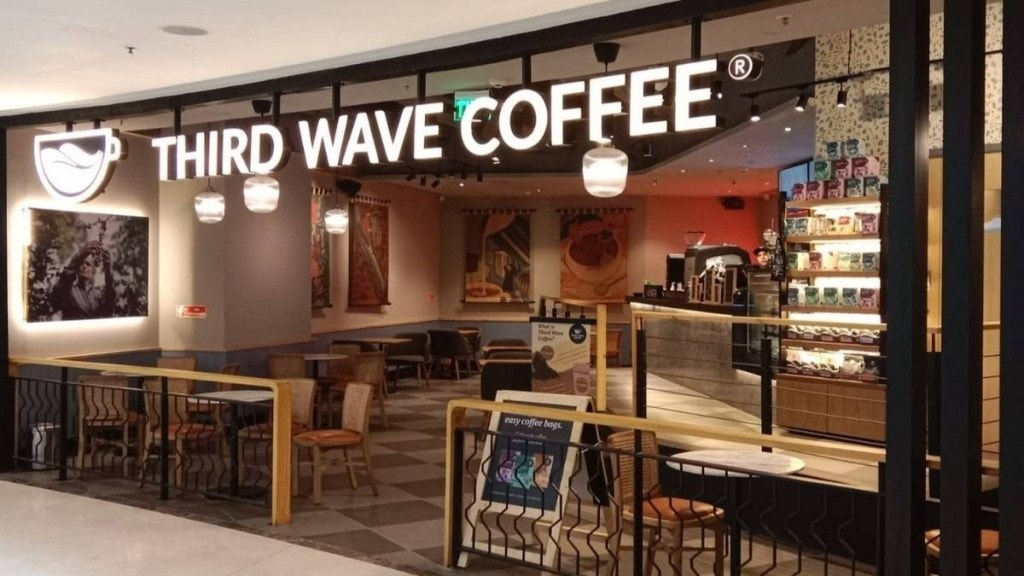For eight-year-old Ayush Bathwal, growing up in Ranchi where tea reigned supreme in every household, the rich, roasted fragrance of coffee that made its way from railway vendors, was his first whiff of rebellion. His parents, like most North Indian families, viewed coffee with suspicion. It was either too bitter, too foreign, or in the case of his grandmother’s stern warnings, something that would “make him darker.” Over two decades later, that same boy alongside his childhood best friend Anirudh Sharma would helm a Rs 1,300 crore specialty coffee empire.
The Seed of an Idea and a Bangalore Garage
The cultural awakening began in a quaint San Diego coffee shop in 2013. Bathwal, then a Qualcomm engineer fresh from University of Illinois, expected bitter fuel for his late-night coding sessions. Instead, he discovered that coffee tasted like “guava and jasmine.” “I was intrigued by how a black cup of coffee could be fruity, very clean, and sweet.” More fascinating were the drone-baristas who spoke passionately about visiting farms, building schools in coffee growing regions, and how “some lot of your cup goes back to them.” This wasn’t ship, storytelling, and human connection.
Meanwhile, back in Ranchi, Sharma had taken over the running of ‘New Rajasthan Kalewalay’ – a 50-year-old family restaurant chain. He had trained at IHM Bhubaneswar and worked with ITC Hotels. Despite different trajectories, their friendship had endured since second grade at St. Xavier’s School, sustained through phone calls and shared dreams of opening a boutique hotel in Rajasthan someday.
When Bathwal called from US in 2015 to share his coffee epiphany, both friends were ready for change. “The money had got to us,” admits Sharma. Armed with combined savings of Rs 60 lakh, they moved to Bangalore. The first “laboratory” was a residential garage in JP Nagar for Rs 5,000 rent. They built bar counters from discarded window frames, got granite slabs free from a family friend’s business, and created coffee after 8 pm to avoid complaints.
And they persisted, taking cupping classes with Sunalini Menon – Asia’s first woman coffee cupper. She taught them to decode coffee language, distinguish between washing and processing in Ethiopia and appreciate the honey processing from Coorg estates. By 2016, the duo opened their first Third Wave Coffee, overlooking golf Bangalore’s busiest intersections in Koramangala.
Scaling Up with Community, Quality, and Obsession
Their central act was the brewing process. Strategically positioned next to the window was India’s first in-store five-kg Diedrich roaster. “No one had seen this before,” recalls Bathwal of the transparent roasting setup. Where other cafes served anonymous blends, Third Wave offered theatre. Every single customer watched green beans that smelled like grass transform into roasted aromatics, while baristas explained single-origin characteristics, processing methods, and flavouring notes.
They were obsessed with the process. If a flat white wasn’t perfect – still alien to India in 2015 – they’d throw it anyway. “Even if the seventh drink didn’t work, we would throw it away, not deliver it to the customer.” The daily routine was relentless too. Bathwal and Sharma woke up at 5:30 AM, bought bread from a nearby bakery basket, reached the store by 6:30, and hand-everything from mopping floors to operating the roast machine.
By their first anniversary, 200 regular customers showed up to celebrate – a community they’d nurtured around shared appreciation for quality coffee. “That’s the first time we felt like we have achieved something,” Bathwal says. “I’m not even talking about people who have started their start-ups at Third Wave or written their first book here.” In 2017, the duo were joined by third co-founder Sushant Goel, an old friend from their boarding school days and an Northwestern University graduate who had turned down a job offer from consulting giant McKinsey to return to India in 2014 to build Clustr, a SaaS data analytics tool for SMBs. Goel would go on to serve as CEO at Third Wave until transitioning to a board member role in 2024.
In the meantime, the specialty segment has exploded: well over 200 roasters operate across India, market growing 15% annually since 2016. Indian coffee consumption now grows at 10.15% annually versus global 2.5-3%, albeit from a lower base. Today, Third Wave operates 165 outlets across 22 cities, serving 7.1 million cups annually.
Their growth story has attracted significant investor interest. $69.9 million raised across 10 rounds from 83 investors. Angel investors include Zerodha’s Nikhil Kamath, Unacademy’s Gaurav Munjal, and dozens of other startup leaders.
But unit-level profitability remains as elusive as perfect crema: its revenues have grown from Rs 32 crore in FY22 to Rs 204 crore in FY24, but losses have doubled to Rs 110 crore. They spend Rs 1.48 to earn Rs 1 of revenue. This is despite 80% coffee margins, boasting gross margins of 75-85% on its simple black coffee, priced at around Rs 200, delivers 80% profit margins, gross margins despite expensive ingredients like oat milk and house-made syrups. However, premium real estate, equipment, imported from Europe, and skilled barista wages, create overheads requiring massive transaction volumes to cover. Perhaps that’s fitting for a business built on brewing after all, building both a coffee culture and a profitable empire demands time.
